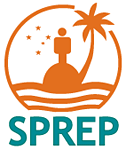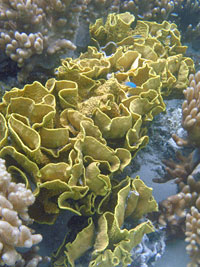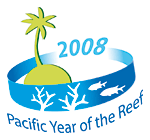75% of the world's coral reefs are in the Indo-Pacific region |
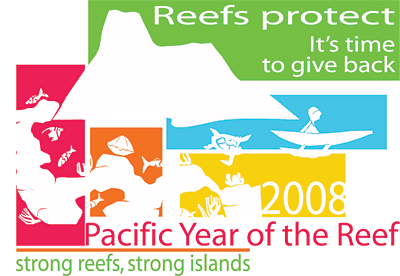
Gathering socioeconomic data from local fishermen around north Efate and offshore islands in Vanuatu in August as part of a CRISP-sponsored resource governance project. Photo by c Vieux.
Different activities are planned as part of national and regional campaigns, including the release of the SEM Pasifika Guidelines which were tested in Arno, Marshall Islands in May initiating a six-month training programme. Photo by C Vieux.
Get Involved!
download 11th ICRS Call to Action
The rate of coral reef destruction has doubled since 1995 with only 1 or 2 percent of reefs in the Indo-Pacific region having living coral on about 60% of their surfaces.
With more than 75% of the world's reefs, the Pacific has a responsibility to arrest the decline of these unique ecosystems now. There is an urgent need for action.
Recent research has shown that even severely degraded corals can recover.
Current efforts to support coral reef rehbilitation in the Pacific region include education programmes, establishing Marine Protected Areas, and controlling the input of land-based pollutants to our seas. Become a PYOR partner and get involved! in some of these efforts.
Become a PYOR Partner
Each person
could help promote the importance of giving back to the protectors
and providers of our Pacific islands and people:
-
Educate yourself about coral reefs and the creatures they support. You can help others understand the fragility and value of the Pacific region’s and the world’s coral reefs when you further your own education.
-
Support organizations and communities that protect coral reefs. Many groups have coral reef programs, and your support will make a big difference. Become a volunteer reef monitor or volunteer for a reef clean up.
-
Be an informed consumer. Conserving water reduces wastewater and support reef-friendly businesses. Pick up your rubbish as beach litter poses a significant threat to the health and survival of marine organisms. Recycle rubbish.
-
Be a responsible tourist. Keep your fins, gear, and hands away from reefs and marine life as even the slightest contact can harm them and some coral can sting or cut you. Stay off the bottom because disturbed sediments can smother corals and never stand or rest on corals. Take only pictures and leave only bubbles.
-
Hire local guides and respect local guidelines when visiting coral reef ecosystems. This will help visitors learn about local resources, customs, and regulations and will also support the local economy. Use available moorings and pay user fees when visiting parks and conservation areas.
-
Stay informed and spread the word.
Adapted from
"Things you can do to protect coral reefs" by the Coral Reef Conservation Program of NOAA, and "Guidelines for Tourists" by The Coral Reef Alliance
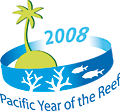
For more information on 2008 Pacific Year of the Reef, contact Caroline Vieux, SPREP Coral Reef Management Officer at carolinev@sprep.org or Sereima Savu, SPREP Pacific Year of the Reef Campaign Coordinator, at sereimas@sprep.org.
